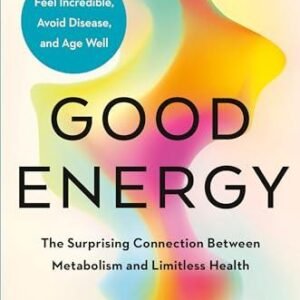In recent years, the rise of plant-based diets has illuminated the critical role of protein in human nutrition, prompting both enthusiasts and skeptics to explore alternative sources of this essential macronutrient. As more individuals transition to veganism or adopt vegetarian lifestyles, the demand for effective protein supplementation has surged, leading to a burgeoning market filled with diverse options. However, not all protein supplements are created equal. The landscape often presents a complex array of choices—ranging from pea and hemp to rice and soy proteins—each boasting unique nutritional profiles and health benefits. This article aims to systematically evaluate the best vegan protein supplements available today, focusing on their amino acid composition, bioavailability, and overall nutritional value, while also considering factors such as sustainability and ethical sourcing. By delving into the science behind these supplements, we seek to provide clarity for those committed to a plant-based diet, ensuring they can meet their protein needs without compromising their dietary principles.
Table of Contents
- Assessing Protein Quality and Amino Acid Profiles of Vegan Supplements
- Comparative Analysis of Leading Plant-Based Protein Sources
- Understanding Ingredients and Additives in Vegan Protein Formulations
- Recommendations for Optimal Protein Intake in Plant-Based Diets
- Wrapping Up
Assessing Protein Quality and Amino Acid Profiles of Vegan Supplements
When evaluating the quality of vegan protein supplements, one must consider not only the protein content but also the amino acid profiles. Proteins are composed of amino acids, some of which are considered essential because our bodies cannot synthesize them. A high-quality protein source should provide a complete range of essential amino acids to ensure optimal health, particularly for those following a vegan diet. Common plant-based sources such as pea protein, quinoa, and hemp seed protein are notable for their favorable amino acid profiles, often containing a balanced mix of essential amino acids.
To further aid in the assessment of vegan protein supplements, it is beneficial to compare their amino acid compositions. Below is a simple table consolidating information on several popular vegan protein sources:
| Protein Source | Key Amino Acids | Protein Quality Rating |
|---|---|---|
| Pea Protein | Leucine, Arginine, Lysine | High |
| Rice Protein | Cystine, Methionine | Medium |
| Hemp Protein | Omega-3, Arginine | Medium |
| Quinoa Protein | All Essential Aminos | High |
Examining these values can help individuals select a supplement that not only fits their dietary requirements but also contributes to their overall nutritional intake. In particular, combining different protein sources can enhance the amino acid profile, addressing potential deficiencies and allowing for a more balanced nutrient consumption. Therefore, being informed about these factors can empower consumers to make beneficial choices that align with their health goals.
Comparative Analysis of Leading Plant-Based Protein Sources
The growing interest in plant-based diets has led to an increased demand for effective protein sources that can meet nutritional needs without animal products. Among the most prominent contenders are pea protein, hemp protein, and brown rice protein. Each of these sources offers distinct nutritional profiles, but their efficacy can vary significantly based on individual dietary goals and preferences. For instance, pea protein boasts a high lysine content, making it a popular choice for muscle recovery and growth. In contrast, hemp protein not only provides essential fatty acids but also delivers a well-rounded amino acid profile, which can be beneficial for overall health. On the other hand, brown rice protein is often favored for its hypoallergenic properties and ease of digestion, appealing particularly to those with specific sensitivities.
To facilitate a clearer understanding, a comparative overview of these protein sources can be beneficial:
| Protein Source | Key Nutritional Benefits | Ideal For |
|---|---|---|
| Pea Protein | High lysine, rich in iron | Athletes, muscle recovery |
| Hemp Protein | Omega-3 fatty acids, full amino acid profile | Overall health, anti-inflammatory |
| Brown Rice Protein | Hypoallergenic, easily digestible | Sensitive individuals, weight management |
Ultimately, the selection of a protein supplement should be guided by individual dietary restrictions, fitness objectives, and personal taste preferences. Combining different plant-based protein sources can also yield a complementary amino acid profile, enhancing overall nutrition while ensuring sufficient protein intake. Understanding these factors is vital for anyone looking to optimize their plant-based diet effectively.
Understanding Ingredients and Additives in Vegan Protein Formulations
When evaluating vegan protein supplements, it’s essential to scrutinize the ingredients and additives used in their formulations. A well-formulated vegan protein powder should primarily consist of high-quality plant-based protein sources such as pea protein, brown rice protein, and hemp protein. These proteins not only provide adequate amounts of essential amino acids but also contribute to overall nutritional value. However, beyond the protein sources, other components can significantly affect the supplement’s effectiveness and healthfulness. Additives such as flavorings, sweeteners, and thickening agents should be carefully considered, as they can alter the nutritional profile and flavor experience.
Key aspects to assess include the use of natural versus artificial additives and the presence of potential allergens or irritants. Ingredients such as stevia, monk fruit, or coconut sugar are often favored for their low glycemic index and natural origins. It’s also vital to evaluate the product’s digestibility; for instance, some formulations incorporate probiotics or digestive enzymes to enhance absorption and gut health. Below is a summary table highlighting common ingredients found in vegan protein powders along with their benefits:
| Ingredient | Source | Benefits |
|---|---|---|
| Pea Protein | Yellow Peas | Rich in iron, promotes muscle growth |
| Brown Rice Protein | Brown Rice | Complete amino acid profile |
| Hemp Protein | Hemp Seeds | High in omega fatty acids and fiber |
| Chia Seeds | Chia Plant | Rich in antioxidants, promotes heart health |
| Probiotics | Bacterial cultures | Supports digestion and gut health |
Recommendations for Optimal Protein Intake in Plant-Based Diets
For those following a plant-based diet, achieving optimal protein intake requires a thoughtful approach to food selection. To enhance protein consumption effectively, it’s crucial to focus on complementing different sources of plant proteins. Incorporating a variety of legumes, whole grains, nuts, and seeds not only provides a wide range of amino acids but also aids in meeting daily protein requirements. Consider including:
- Lentils and chickpeas: Excellent sources of protein and fiber.
- Quinoa and buckwheat: Complete proteins that contain all essential amino acids.
- Nuts and seeds: Packed with healthy fats as well as protein.
- Fermented soy products: Tempeh and miso can enhance protein absorption.
Additionally, understanding the protein content in various plant-based supplements can significantly aid in meeting your protein goals. Certain vegan protein powders stand out due to their nutritional profiles, making them worthwhile additions to your diet. When evaluating these supplements, consider their protein quality, amino acid profile, and digestibility. A comparison of popular protein powders based on these criteria can facilitate informed choices:
| Protein Source | Protein per Serving | Amino Acid Profile | Digestibility |
|---|---|---|---|
| Pea Protein | 20g | Rich in BCAAs | High |
| Brown Rice Protein | 22g | Low in Lysine | Moderate |
| Hemp Protein | 15g | Complete Protein | High |
| Mixed Plant Protein | 25g | Balanced Profile | High |
Wrapping Up
the selection of an appropriate vegan protein supplement is a paramount consideration for individuals pursuing a plant-based diet. As we have explored, the landscape of vegan protein options is diverse, encompassing a myriad of sources such as pea, hemp, rice, and soy, each with its unique amino acid profiles, nutritional benefits, and potential allergens.
When evaluating these supplements, it is essential to consider not only their protein content but also their bioavailability, the presence of essential nutrients, and the broader implications for overall health. Factors such as sourcing practices, processing methods, and potential additives should also play a critical role in your decision-making process.
Ultimately, the best vegan protein supplement is one that aligns with your dietary needs, lifestyle, and ethical values while supporting your health and wellness goals. As the demand for plant-based nutrition continues to rise, staying informed and critical about the products you choose will ensure that you are making choices that enhance not only your personal health but also the sustainability of the planet. By approaching your dietary decisions with a thoughtful and analytical mindset, you can navigate the complex world of vegan protein supplements with confidence and clarity.




